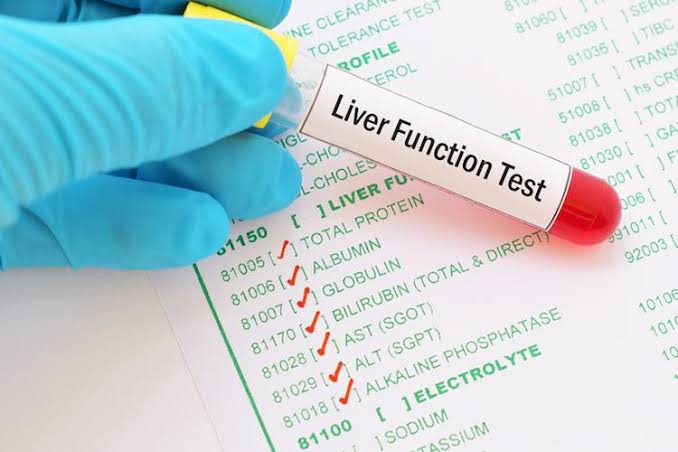What Tests are Included in Abnormal Liver Function Tests (LFTs)?

Abnormal LFTs are important for checking the health of your liver. Elevated or low levels may indicate liver conditions even if you don’t have any symptoms. If you have abnormal results, let your doctor start immediate treatment.
When your liver is functioning abnormally, your doctor may order liver function tests, also known as LFTs. These groups of blood tests measure your proteins, enzymes, and bilirubin. The results provide information about how well your liver is performing. Abnormal LFTs may indicate various liver conditions, including hepatitis, fatty liver disease, cirrhosis, and more. Some of the most common symptoms you will see are jaundice, which is yellowing of the eyes and skin, nausea, diarrhoea, and pain in the abdomen.
Total Abnormal Liver Function Tests
These tests are important for finding liver problems. If you have symptoms, whether they are minor or major, your doctor will suggest getting these tests to check your levels.
- Function Tests
- Serum Bilirubin Test: Serum Bilirubin Test helps measure the levels of bilirubin in your blood. Bilirubin is a substance made by the liver and excreted in the bile. If you have elevated levels of bilirubin, it may indicate an obstruction in the bile duct or trouble processing it.
- Serum Albumin Test: Serum Albumin Test may be useful in diagnosing liver diseases. The test checks the levels, and a low level may indicate that the liver is not functioning optimally.
- INR: INR is also called the International Normalised Ratio or Prothrombin Time Test. It measures the time it takes for your blood to clot. Blood clotting occurs when vitamin K and a protein (made by the liver) combine. Prolonged clotting may indicate liver problems.
- Liver Enzymes
- Serum Alkaline Phosphatase Test (APT): The APT measures this level in your blood. This enzyme is found in the liver, biliary tract, and bone. The test helps assess liver lesions that may cause tumours or abscesses.
- Alanine Transaminase Test (ALT Test): The ALT test measures the level of this enzyme in your blood. It is released after acute liver cell damage and is also used to monitor the effectiveness of treatment for acute liver diseases such as hepatitis.
- Aspartate Transaminase Test (AST): AST is used to measure the level of AST in your blood. AST is an enzyme found in the liver, kidneys, pancreas, heart, skeletal muscle, and red blood cells. It is released into the blood after you experience liver or heart issues. In the case of the liver, it is released if you have liver cell damage.
- Gamma-Glutamyl Transpeptidase Test: Gamma-Glutamyl Transpeptidase Test checks the levels of gamma-glutamyl transpeptidase to assess liver function and detect alcohol ingestion. This enzyme is produced in the liver, biliary tract, and pancreas.
- Lactic Dehydrogenase Test: Lactic Dehydrogenase Test is used to identify tissue damage and may assist in diagnosing liver disease. Lactic dehydrogenase is a type of protein involved in the body’s metabolic processes.
- 5′-Nucleotidase Test: 5’-Nucleotidase Test checks the level of 5′-nucleotidase. Elevated levels suggest a liver problem and may indicate cholestasis.
- Additional Diagnostic Tests
- Alpha-Fetoprotein Test: This specific blood protein is produced by foetal tissues and tumours. The test is used to predict primary liver cancer and to monitor therapy for hepatomas, a type of liver cancer.
- Mitochondrial Antibodies Test: The presence of antibodies in the blood can indicate chronic active hepatitis, autoimmune disorders, or biliary cirrhosis.
- Serum Alpha-1 Antitrypsin Test (A1AT): This test measures the levels of alpha-1 antitrypsin in your bloodstream. It helps identify a rare type of emphysema in adults and cirrhosis in children.
Symptoms of Liver Diseases
If you are experiencing any of the symptoms listed below, consider getting a liver function test:
- Nausea and vomiting
- Loss of appetite
- Unintentional weight loss
- Pain in the right upper abdomen
- Swelling in the feet, ankles, or calves
- Jaundice, characterised by yellowing of the eyes and skin
- Dark urine
The Procedure of the Test
The test is quick and simple.
- Blood sample collection: A healthcare professional or a technician will take your blood sample. A small, sterile needle will be inserted into a vein in your arm, and blood will be drawn.
- Lab analysis: The sample will then be placed into a vial and sent to the lab for analysis. Different markers are measured to assess liver function.
- Minimal Discomfort: During the test, you might feel a slight twinge at the injection site and could develop a bruise. However, any discomfort from the injection will subside within a few hours.
What are the Standard Ranges for Liver Function Tests?
Normal ranges can differ based on gender, body size, and specific lab practices. On average, typical ranges encompass:
- Alanine transaminase (ALT): 0 to 45 IU/L
- Aspartate transaminase (AST): 0 to 35 IU/L
- Alkaline phosphatase (ALP): 30 to 120 IU/L
- Gamma-glutamyltransferase (GGT): 0 to 30 IU/L
- Bilirubin: 2 to 17 micromoles/L
- Prothrombin time (PT): 10.9 to 12.5 seconds
- Albumin: 40 to 60 g/L
- Total proteins: 3 to 8.0 g/dL
In conclusion, we can say that abnormal liver function tests play a crucial role in uncovering potential liver issues. They provide vital insights into your liver’s health. Remember, these tests are a valuable tool for identifying various liver conditions. If you experience symptoms or suspect liver problems, consulting a healthcare professional is essential for accurate diagnosis and timely care.